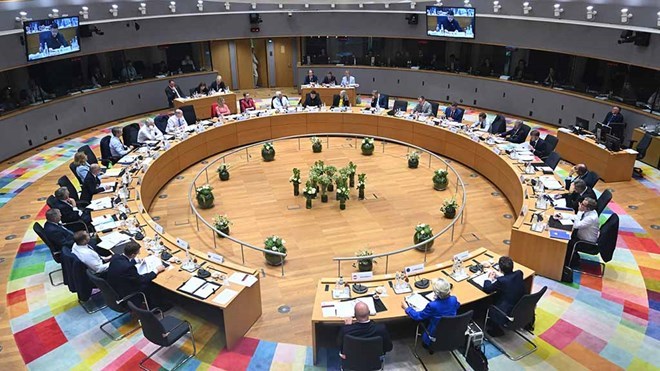The European Commission (EC) warned that member states of the European Union (EU) will face sharply increased deficits and public debt unless they agree to use Russian frozen assets as collateral to finance Ukraine.
This warning appeared in a document sent to EU members after failing to reach a consensus on a compensation loan of about 140 billion euros ($150 billion) last month.
If the frozen foreign currency reserves of the Russian Central Bank are not used, the EU will have to allow joint borrowings or issue direct subsidies. According to the EC, both of these options directly affect the national budget and increase public debt.
It is not yet clear whether the EU will consider not funding Kiev.
The potential cost for EU economies is significant, as paying interest on such a collective loan could be up to 5.6 billion euros a year. The EC has also warned that such large-scale borrowing could increase the EU's general borrowing costs and affect other financial instruments.
Kiev expects Western donors to make up for a nearly $50 billion deficit next year, with the 2026 budget estimated to spend about $114 billion and only collect $68 billion - almost all for military purposes.
Most of Ukraine's unrelated government spending, including salaries, pensions, health care and education, will depend entirely on foreign aid.

However, Belgium still opposes the use of Russian assets as loan collateral, citing serious financial risks and reputational risks.
The amount of frozen assets, totaling about $300 billion globally, with about $200 billion held at Belgium's Euroclear, has not been technically seized and could be reclaimed by Moscow if EU sanctions are not extended continuously.
Accordingly, the EU has sought to expand the legal definition by considering the interest arising from these frozen assets as surprise profits, not belonging to Russia, and using them to provide weapons to Ukraine.
The result is a new plan based on the assumption that Russia will repay this loan as part of a future peace deal. Belgian Prime Minister Bart De Wever said that this prospect is unlikely.
Most recently, on November 7, the EU once again failed to convince Belgium to support the use of the asset.
For its part, Russia has repeatedly said it will consider any use of frozen assets as a act of theft, and can retaliate by seizing 200 billion euros ($172 billion) in Western assets held by foreign governments and companies in Russia.











